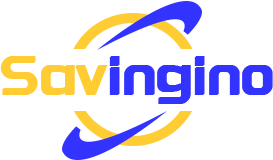1. What is a Small Business Loan?
A small business loan is a financial solution aimed at offering funding to small enterprises. These loans assist businesses in addressing various needs, including working capital, equipment acquisitions, expansion efforts, inventory purchases, and everyday operational expenses. Small business loans serve as a crucial resource for entrepreneurs seeking extra funds to develop their ventures when they lack adequate capital.
Depending on the loan type and the lender, funds may be provided as a lump sum with a fixed interest rate or as a line of credit that can be accessed as needed. Small business loans offer owners financial flexibility, allowing them to meet their business needs at various stages of growth.
2. Types of Small Business Loans
There are various types of small business loans designed to meet diverse business requirements. Below are the primary categories:
- Term Loans: These loans offer a one-time payment that is repaid over a set duration, usually at a fixed interest rate. They are well-suited for significant investments, such as buying equipment or expanding a facility.
- SBA Loans:Loans supported by the Small Business Administration (SBA) provide more advantageous conditions, including reduced interest rates and extended repayment terms. Nevertheless, SBA loans come with more stringent eligibility requirements and a lengthier approval process.
- Business Lines of Credit: This loan option enables businesses to access funds up to a specified credit limit. You can withdraw, repay, and withdraw again as necessary, making it perfect for handling cash flow and short-term expenses.
- Invoice Financing:If your business has unpaid invoices, you can leverage them to obtain a loan. The lender will provide you with a percentage of the invoice amount, which can enhance your cash flow as you await payment from your customers.
- Equipment Loans: These are specifically intended for acquiring equipment, with the equipment frequently acting as collateral.
3. How to Qualify for a Small Business Loan
Loan qualifications differ based on the lender and the type of loan, but generally, most lenders require the following:
- Credit Score: Having a solid personal or business credit score is crucial. Generally, a score of 680 or above is required to obtain a favorable loan. Scores below this threshold can lead to higher interest rates or limited loan choices.
- Business Age: Lenders typically favor businesses that have been in operation for a minimum of one to two years. Startups might need to explore alternative financing options or be ready to present a comprehensive business plan.
- Revenue: Lenders evaluate the financial stability of your business by examining your revenue. Consistent and adequate revenue streams enhance your likelihood of receiving approval.
- Collateral: Certain loans, especially those that are larger or carry higher risks, necessitate collateral. This collateral may include business equipment, real estate, or inventory.
4. Pros and Cons of Small Business Loans
Pros:
- Capital for Growth: Loans offer the essential capital needed to expand your business, whether for growth, acquiring inventory, or hiring employees.
- Build Credit: Timely repayment of your loan contributes to building a solid business credit profile, facilitating the process of obtaining future funding.
- Flexible Options: You can select from a range of loan options that align with your business's requirements and repayment capacity.
Cons:
- Interest Costs: Interest rates can vary considerably based on the type of loan and your credit profile, which can raise the total cost of borrowing.
- Debt Obligation:Loans need to be repaid regardless of your business's performance, which can be difficult during downturns.
- Strict Qualifications: Not every business will be eligible, particularly startups or those with poor credit or fluctuating revenue.
5. Interest Rates and Loan Terms
Interest rates for small business loans can differ significantly based on various factors, including your credit score, the amount of the loan, and the type of loan. For instance, SBA loans generally provide lower interest rates, typically between 4% and 10%. In contrast, other loans may carry rates exceeding 30% for borrowers deemed higher risk.
Loan terms can differ significantly; shorter durations (such as 6 to 12 months) typically come with higher interest rates but allow for quicker repayment. In contrast, longer terms (ranging from 3 to 10 years) provide lower monthly payments, though they may lead to a greater total interest cost over the life of the loan.
6. How to Apply for a Small Business Loan
To apply for a small business loan, you'll need to collect various documents and make a compelling case to the lender. Here’s a list of what you should prepare:
- Business Plan: A comprehensive business plan that clearly defines your objectives, outlines the intended use of funds, and presents your projected cash flow is crucial, particularly for startups.
- Financial Statements: Be ready to provide profit and loss statements, balance sheets, and cash flow statements that demonstrate the financial health of your business.
- Tax Returns: The majority of lenders will ask for personal and business tax returns from the last two to three years.
- Collateral: If your loan is secured by collateral, make sure you have the appropriate documentation to verify its worth.
After you submit your application, the lender will assess your creditworthiness, financial history, and business plan to reach a decision. Online lenders typically offer quicker approval times, often delivering decisions within a few days, while traditional bank loans and SBA loans may take several weeks to process.
7. When to Consider a Small Business Loan
A small business loan can be an effective financial resource when utilized wisely. Think about seeking a loan in the following situations:
- You have a well-defined growth strategy that necessitates prompt funding, whether it's for launching a new location, expanding your team, or enhancing your marketing efforts.
- Your business maintains a consistent cash flow and is well-equipped to manage loan repayments without difficulty.
- You're prepared to establish or enhance your business credit for upcoming borrowing possibilities.
Nevertheless, steer clear of incurring unnecessary debt if your business is facing financial difficulties, as the additional strain of loan repayments may worsen cash flow problems.
Conclusion
Small business loans provide entrepreneurs with the financial flexibility necessary for growth and success. By grasping the fundamentals—such as loan types, eligibility criteria, and repayment options—you can make well-informed choices and select the most suitable loan for your business requirements. Whether you need funding for expansion, equipment purchases, or cash flow management, familiarizing yourself with these seven key aspects will equip you to move forward with assurance.








